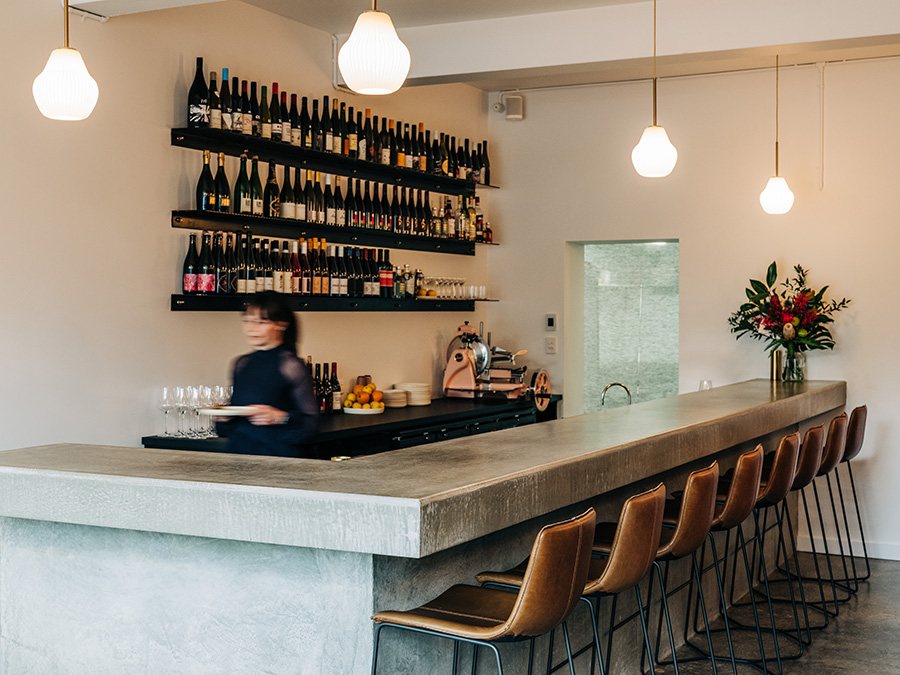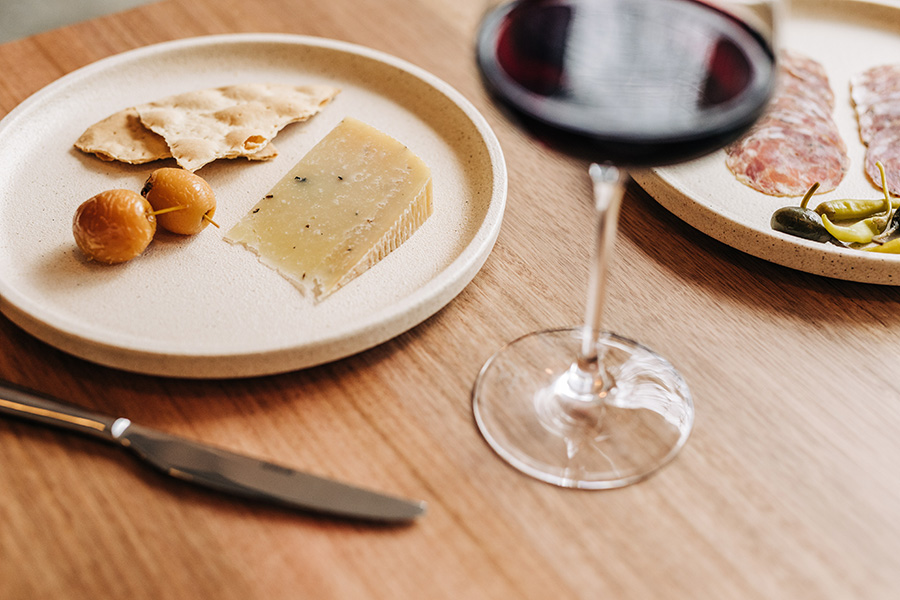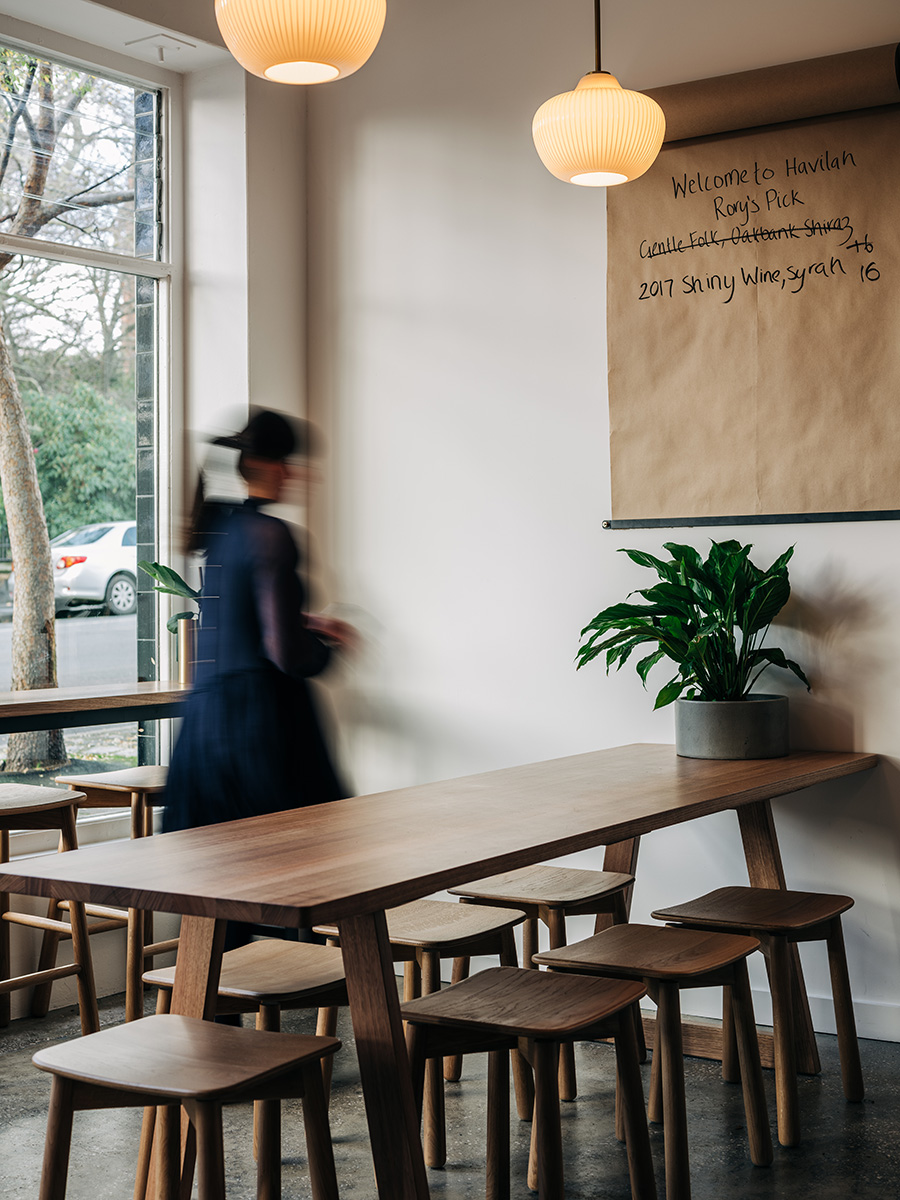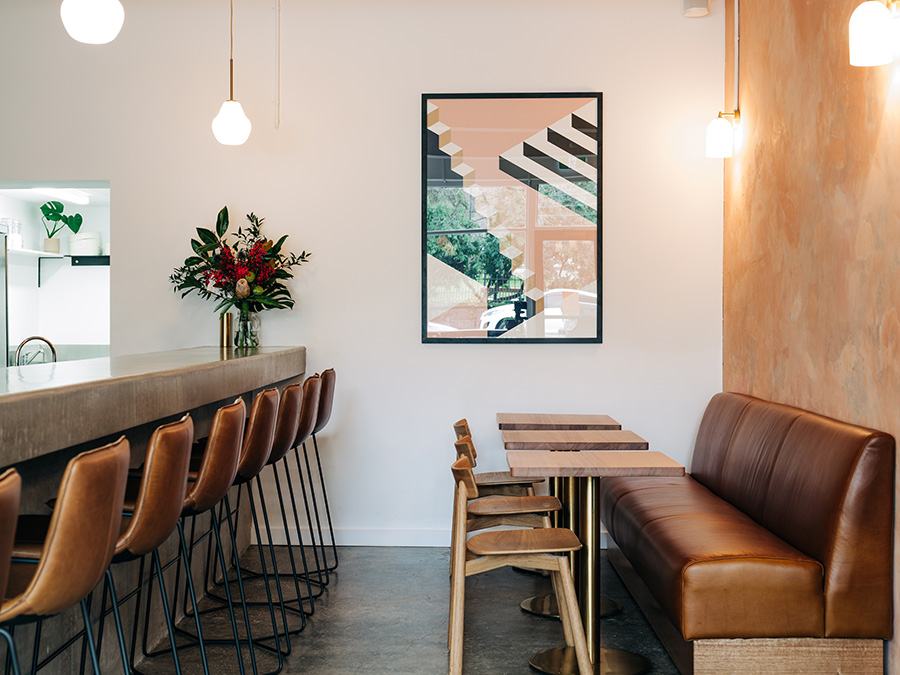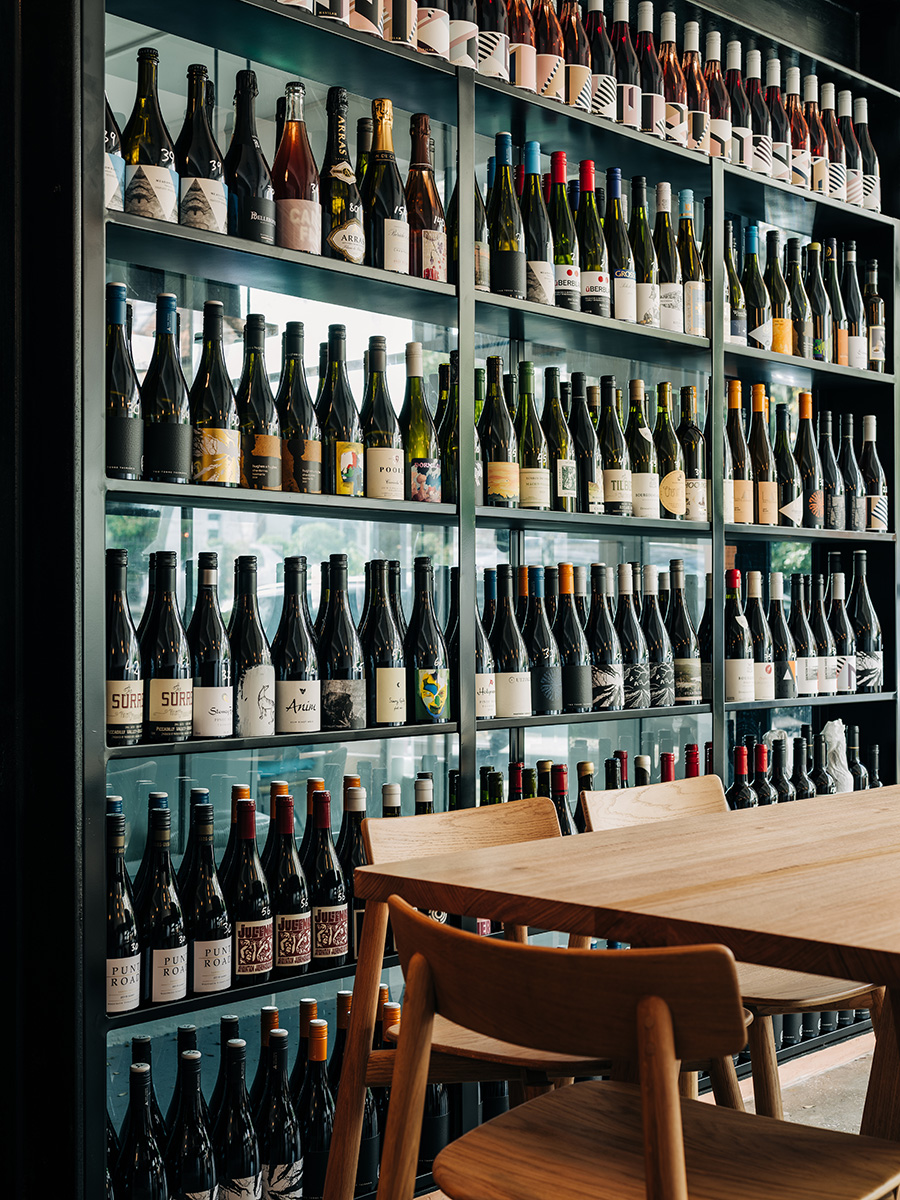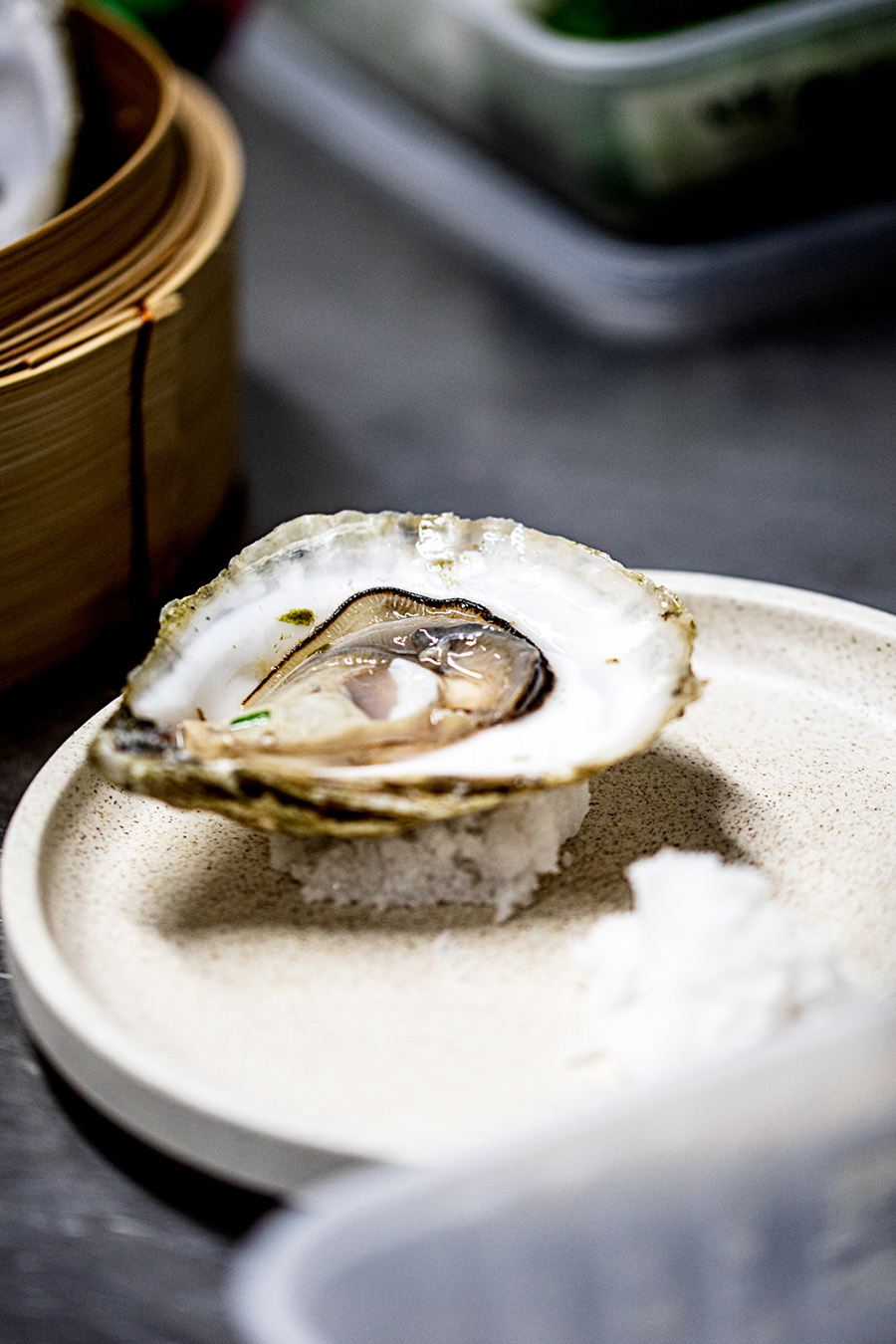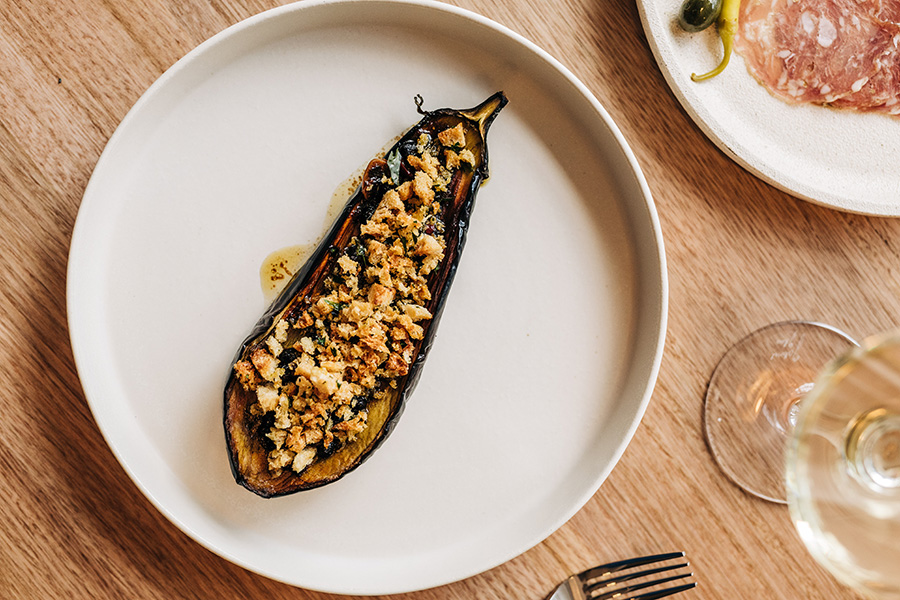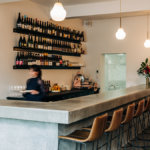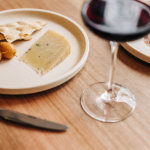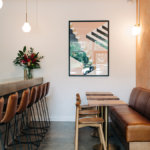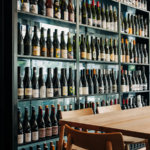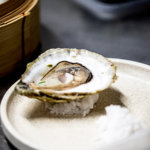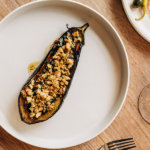The lowdown
Havilah is as much an outlet for Ricky Evans’ Two Tonne Tasmania and Havilah labels as it is a way to represent the wines that he and Chanel Parratt love both from Tasmania and around the world, and all paired with smart wine-friendly share plates.
Opening a hospitality venture during a global pandemic is not something that even the most thorough business plan would address (well, they might now). But Ricky Evans and Chanel Parratt’s plans on opening a wine bar – aligning Evans’ Two Tonne Tasmania and Havilah wine labels with like-minded makers – were not going to be delayed for too long.
While many venues were tentatively reopening, Evans and Parratt’s Havilah, on Charles Street in Launceston, was welcoming customers for the first time. On opening night, most hospitality operators are running around touching up paint jobs or disguising works not yet finished. Not so at Havilah, with the April 2020 opening postponed for obvious reasons, the pair had plenty of time to get the paint job right, polish the brass, buff the timber…
Havilah is a compact and serenely stylish wine bar, all polished concrete and hard plaster, with bespoke local timber furniture of a mid-century vibe. A tan leather banquette nestles in one corner, with Evan’s Havilah label referenced on the print that hangs on the back wall – like a pastel M.C. Escher – while the same tan hide is used on the stools that flank the slick concrete bar. The wine offer spans black steel shelves conspicuously bolted to the back wall of the bar, with a flywheel meat slicer tucked into the corner near a compact prep kitchen.
That slicer is a wine bar essential, with the distinctive mechanics and classic pop of red a reassuring sight, but Parratt has taken a different angle. “We have a very pretty Italian meat slicer which we resprayed from Ferrari red to peach,” she says. It’s a subtle but important distinction, with the style of Havilah a personal affair, considered down to the last detail.
Along with cured meats shaved from that slicer, there are local and international cheeses, of course, excellent sourdough, Cuca sardines with spring herbs, and saganaki with local honey, nigella seeds and thyme amongst the smaller plates. Broccoli and anchovy orecchiette and ricotta gnudi with mushrooms and miso butter are the current larger offerings, with vanilla panna cotta a sole sweet treat. It’s pretty classic wine bar fare done extremely well.
“One of the things we hoped locals would fall in love with at Havilah is our less-structured food and wine setting,” says Parratt, “where you can sit at the bar, try a bunch of different wines and enjoy really tasty snacks without compromising on the quality of either one of those experiences.”
The list represents Tasmania’s cutting edge, and it’s not afraid to pit them against mainland competition, or indeed those from around the world. Evans and Parratt also make a subtle but very important point about their state, focusing intently on subregions, rather than grouping wines under the broad state banner that is the legal framework for the island’s wines. That selection naturally encompasses Evans’ Two Tonne Tasmania and Havilah labels, but also navigates a confident course through the best offerings of his peers, like Mewstone, Small Island Wines and Stargazer.

